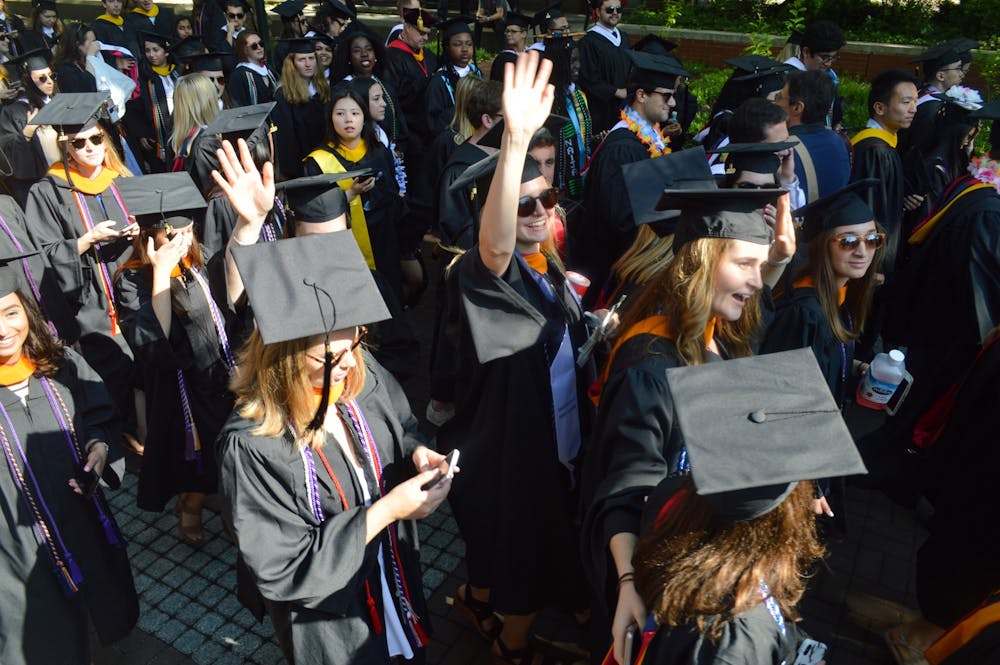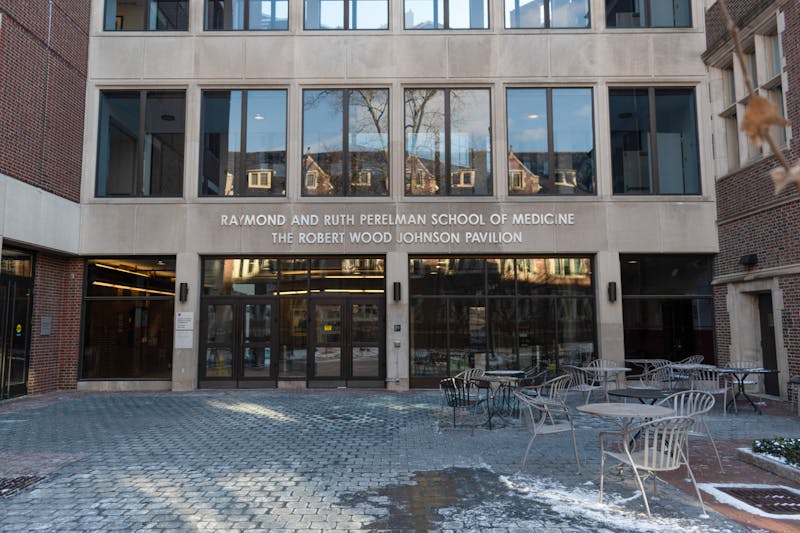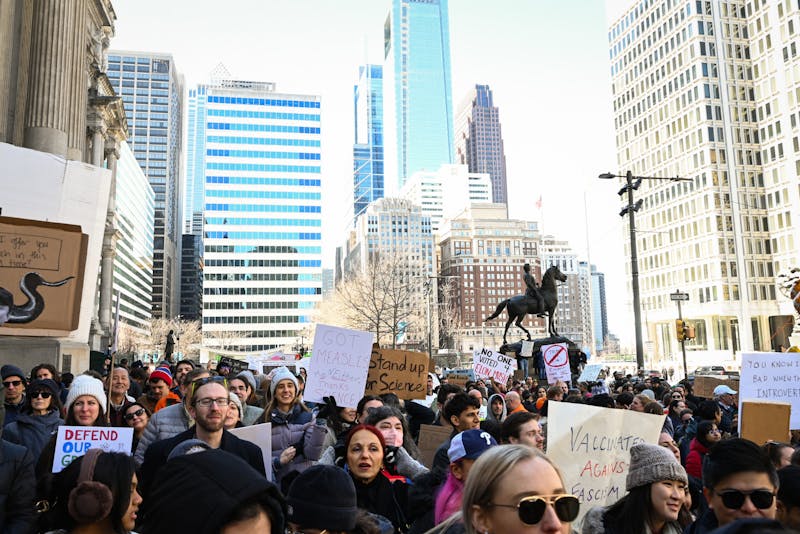
Penn’s decision last week to host a partially in-person commencement on May 17 was received by many graduating seniors with appreciation and celebration. But for many Orthodox Jewish students, the decision also produced anxiety and uncertainty around the date of commencement, which is scheduled on the same day as the Jewish holiday Shavuot.
The conflict poses numerous difficulties and complications to Orthodox students and families, resulting in a commencement ceremony that is far from equitable: because of religious practices, many students and parents will be unable to attend commencement in any way, for reasons detailed below.
Yet, the solution is simple: Penn can move the date of commencement to a date that does not conflict with a holiday. Even by moving commencement just a single day earlier, the University could correct the situation and accommodate Orthodox Jewish students. By leaving commencement on its currently scheduled date, Penn will essentially be mandating an event that is less accessible to some students simply because of their religious affiliations.
Unlike other exclusions that the University is making this year — such as the decision to exclude students who haven’t been living on or near campus this past semester, for example – the choice to exclude Orthodox students from full participation has nothing to do with public health measures. By simply moving the date, Penn can maintain all its policies that are meant to combat the spread of COVID-19 while simultaneously making the ceremonies inclusive of Orthodox students.
The commencement ceremony on May 17 will force graduating students who practice Orthodox Judaism to choose between attending sacred religious festivities and attending their once-in-a-lifetime college commencement ceremony. Even the students who choose to skip religious services and attend the in-person commencement will face numerous technical and experiential challenges at the ceremony. Many observant Orthodox Jews refrain from using technology on holidays, a religious observance that will certainly be difficult to maintain in the setting of commencement.
The conflict with the holiday presents even more challenges to those Orthodox students and families who can’t attend commencement in-person. With religious practice preventing those students and family members from using computers and joining virtually, they will be presented with no choice but to miss the commencement ceremony entirely. Yes, you read that right — Penn’s decision to host commencement on May 17 means that some graduating students will be forced to entirely miss commencement simply because they are observant Orthodox Jews.
On top of this, many Orthodox students won’t be able to attend many of the other graduation ceremonies, some of which are set to occur virtually over the same holiday and on the Sabbath two days earlier.
The University’s decision to set commencement on the same day as a holiday that over forty graduating seniors celebrate is a direct violation of their own stated goals in the Penn Compact 2022, which lists inclusion as one of its three primary aims, alongside innovation and impact. It writes: “The Penn Compact 2022 affirms inclusion as a means toward the essential ends of higher education: equalizing opportunity, educating leaders for all sectors of society, and enriching the experience of all members of the University community.”
After four years of coursework, exams, student activities, campus life and Penn traditions, all students should be granted a commencement that is accessible, equitable, and fair. By changing the date of commencement, Penn can achieve this goal and follow through on its promises made in the Penn Compact.
Most alarmingly, the Penn administration has been aware of this conflict for nearly three years and has done little to effectively address the concerns of students and staff. Since before the fall of 2019, Hillel staff members and student leaders — including myself — have been meeting with the Chaplain’s Office to relay our thoughts to University administrators. While the Chaplain’s Office has been generous, sympathetic, and kind, the members of the administration tasked with planning graduation ceremonies never offered to change any of the dates, even after becoming aware of the conflict. They continuously provided the same answer: the logistics of Penn’s graduation ceremonies were complicated and involved many considerations, not just the worries of Orthodox Jewish students. Even though students and staff had been advocating for years, we were told that the dates were simply unable to be changed due to early logistical planning and bookings.
After making the choice to host only a single event for the entirety of graduation, the request to switch the date becomes even less complicated. There are no other large events happening on campus for the entire week before or after the scheduled date; there are no longer any considerations about different events on campus conflicting in space or time. Because the rest of graduation will be occurring virtually, event times can be adjusted with much more ease.
Understandably, there will be some who say that, given the extraordinary circumstances, we should appreciate whatever form of commencement we are granted. And I want to be clear: the University’s efforts to produce an in-person commencement are appreciated and commended. That being said, to me — and to many other Orthodox Jews of the Class of 2021 — the prospect of a commencement that isn’t fully inclusive of our religious identity is simply unacceptable. The pandemic is not an excuse for religious intolerance.
Penn’s willful ignorance of our religious practices, however, can be corrected. Penn can do better. By switching the commencement date, Penn can make a move to actively include students who would otherwise feel overlooked.
YONI GUTENMACHER is a College senior studying English and computer science. He is also one of the co-chairs of the Orthodox Community at Penn. His email is yogutt@sas.upenn.edu.
The Daily Pennsylvanian is an independent, student-run newspaper. Please consider making a donation to support the coverage that shapes the University. Your generosity ensures a future of strong journalism at Penn.
Donate






